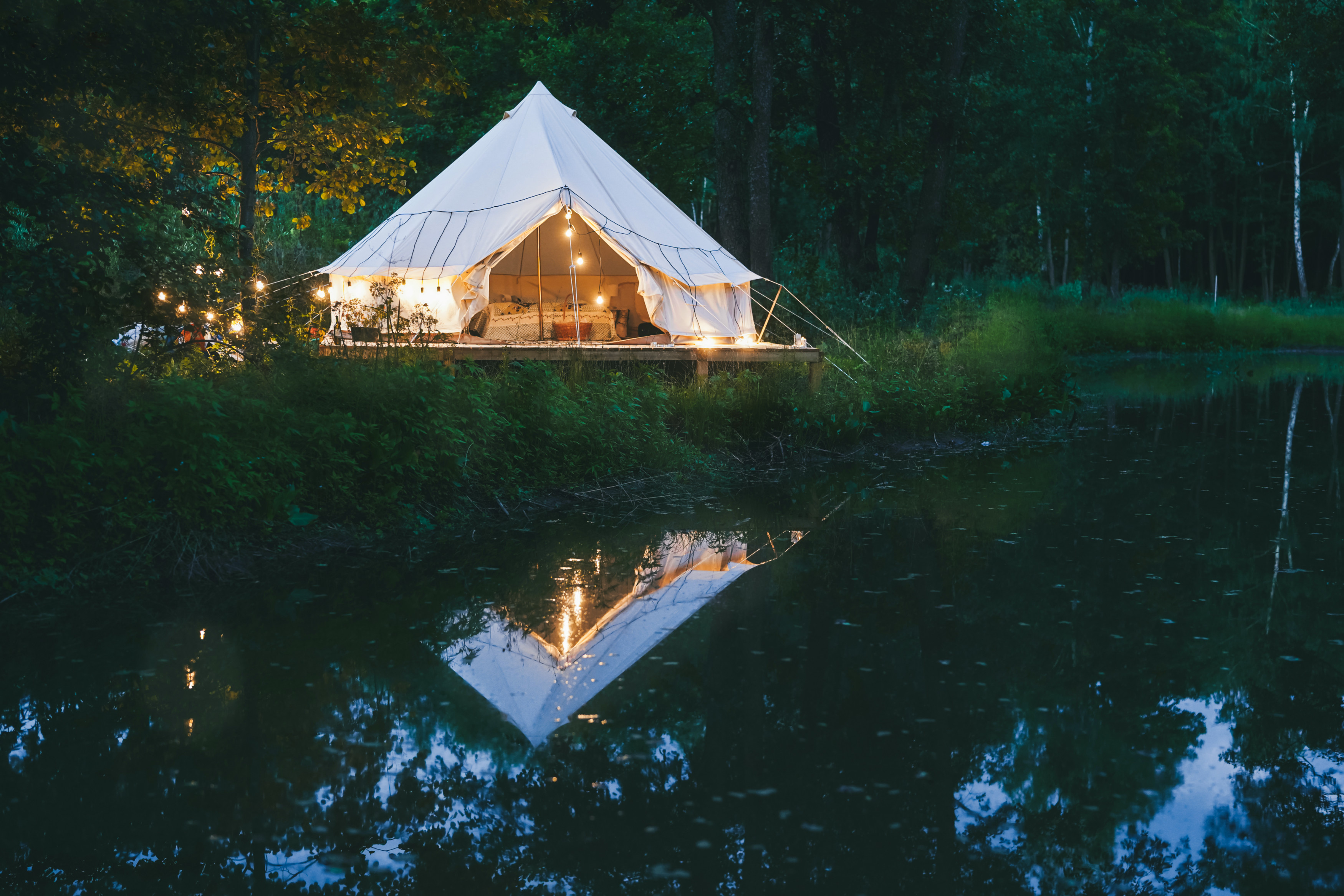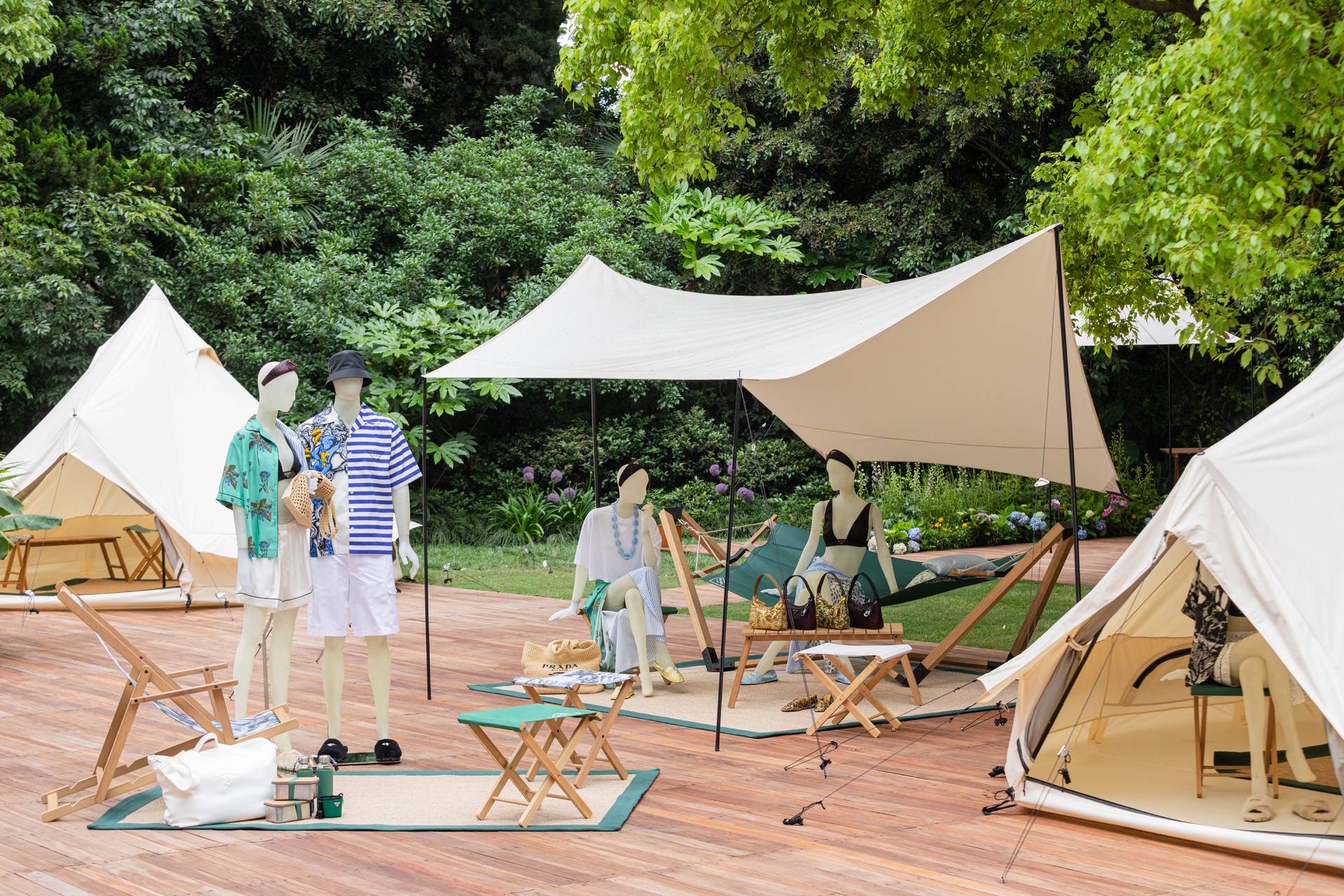
Camping in comfort, and all the equipment needed to make it happen, is growing market in China. Photo credit: Shutterstock
With a bad case of pandemic-induced cabin fever, China’s concrete jungle dwellers are looking outdoors for relaxation and going camping in droves.
Last year, interest in domestic outdoor activities soared after international travel dried up, leading Alibaba Group e-commerce site Tmall to dub 2020 “The Year of Camping” after related searches on the platform jumped 297% year-on-year.
In 2021, the trend is still going strong, albeit with a comfort-first twist experienced first-hand by California-based sustainable drinkware brand Klean Kanteen, which sells its colorful metal bottles and mugs to Chinese urbanites.
“What we call glamor camping, or glamping, here in the United States seems to be resonating with Chinese consumers,” said Michael Duffy, the brand’s vice president of Global Sales and Customer Service.
Glamping, characterized by short stays in well-appointed lounge tents, has a global market estimated at $1.88 billion last year and an expected compound annual growth rate of 14.1% over the next seven years, a report by market researcher Grand View Research found.
In China, the trend is appealing to young urbanites who crave fresh air and nature but desire creature comforts like soft mattresses, wicker furniture and picturesque campsites complete with twinkle lights.
Reality TV show Oh My Youth debuted in April, featuring a rotating cast of influencers who camp in lavish digs in different provinces of China. Meanwhile, the feeds of social media sites like Xiaohongshu remain crowded with chic camping-inspired posts.

Even luxury brands are getting the memo; fashion label Prada transformed one of its Shanghai stores into an indoor glamping experience in May, featuring a solarium dotted with canvas tents.
A Unique Perspective
Glamping’s recent popularity in China may be because it chimes well with Chinese consumers’ definition of the outdoors, which is unique from their western counterparts.
Time in nature means more than mountain hikes and desert treks for Chinese consumers; it includes park picnics and relaxing trips to rural areas, explained Jacob Cooke, CEO and co-founder of Beijing-based e-commerce agency WPIC Marketing and Technologies.
“The Chinese concept of going outdoors is different from the West,” he said. “Given the country’s population density, they have a different perspective and outdoor activities can be as simple as going to the park with a cup of coffee.”
Hip white-collar workers are using Klean Kanteen’s durable travel mugs during a glamping weekend retreat then reusing them for their morning coffee.
“Chinese consumers are searching for a sustainable way to get into nature,” Duffy said.

Room to Grow
More than 7,500 camping-related enterprises in China were founded in the first six months of 2021, almost as many as appeared over the whole of 2020, according to business registration data.
Purchases of outdoor-related products, from comfortable wooden chairs and cute travel mugs to photogenic canvas tents and delicate strands of lights, are also up and have jumped by over 130% in the case of Tmall’s 6.18 sales.
To be sure, there remains significant growth potential for China’s outdoor vacation market, which is dominated by short overnight trips.
The average domestic camping or glamping trip lasts just three days, the Beijing International Studies University reported, while Europeans pitch their tents for 14 days on average.
But as more Chinese spend time outdoors — and embark on longer trips — the market for camping-related goods and services will grow, hitting an approximate $100 billion valuation by 2025, according to a report by Beijing-based consultancy Daxue.




